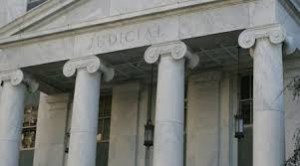
What exactly is an “activist judge” and why should I care? I often get this question at cocktail parties. In legal circles, the answer to the question “What is an activist judge” is usually answered “Any judge who rules against you.” But the term is being heard frequently in the news these days, perhaps because of several rulings coming from the United States Supreme Court and perhaps because of the piecemeal change in marriage equality being played out in various’ states’ Probate Courts on a seemingly daily basis.
An “activist judge” is actually a judge who is seen as attempting to legislate from the bench, a judge who, through her or his judicial rulings, is reading into the law something that is not actually there, or who is trying to create law as she or he thinks it should be even if the statute at issue doesn’t actually say or permit such a ruling. It is a judge or justice who makes rulings based on personal political views or considerations rather than on the law, or who issues rulings intended to have political effects. The label of “activist judge” has become pejorative, usually said with a roll of the eye, or a slight snicker of disdain, as if such a judge has no credibility or they are inherently bad. No judge, ostensibly, wants to be labeled an “activist judge.” For example, in Wisconsin the election for the State Supreme Court is around the corner and a challenger to an incumbent justice claims the incumbent is “activist” and, therefore, should be summarily disposed of. The name-calling also usually only applies to judges in appellate courts, who either correct error in the trial courts below or interpret the current law, whether statutory or common (case made) law, to determine how a case should turn out given its unique set of facts. Whether you deem a judge to be an “activist” sometimes appears to be no more than a political question and sometimes seems to come down to your political beliefs. If the judge ruled in opposition to your political beliefs, you may tend to label that judge “activist.” For example, the Conservative ThinkTank The Heritage Foundation, whose self-proclaimed mission “is to formulate and promote conservative public policies based on the principles of free enterprise, limited government, individual freedom, traditional American values, and a strong national defense,” has an entire page on its website devoted to calling out what it contends are rulings by activist judges or activist courts. Last month, prompted largely by recent court rulings on gay marriage, an Idaho House committee voted Monday to introduce a resolution calling for the impeachment of federal judges who don’t follow the original intent of the U.S. Constitution.
“Judicial Restraint” is often considered the opposite of “Judicial Activism.” “Judicial Restraint” is a theory of judicial interpretation that encourages judges to limit the exercise of their own power. It asserts that judges should hesitate to strike down laws unless they are obviously unconstitutional, though what counts as obviously unconstitutional is itself a matter of some debate. In deciding questions of constitutional law, judicially restrained jurists go to great lengths to defer to the legislature. Judicially restrained judges respect stare decisis, the principle of upholding established precedent handed down by past judges.
 Atlanta Injury Lawyer Blog
Atlanta Injury Lawyer Blog














